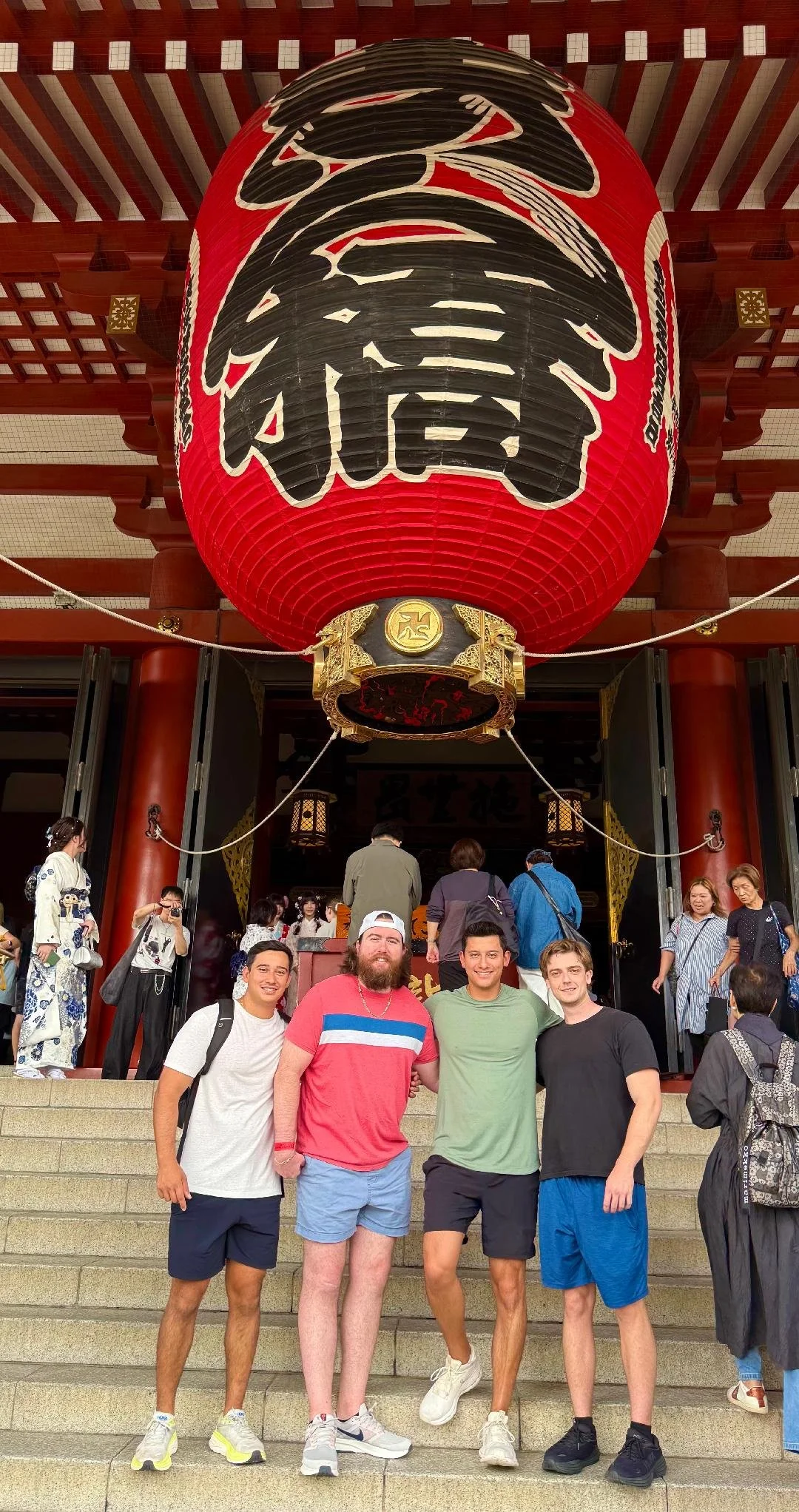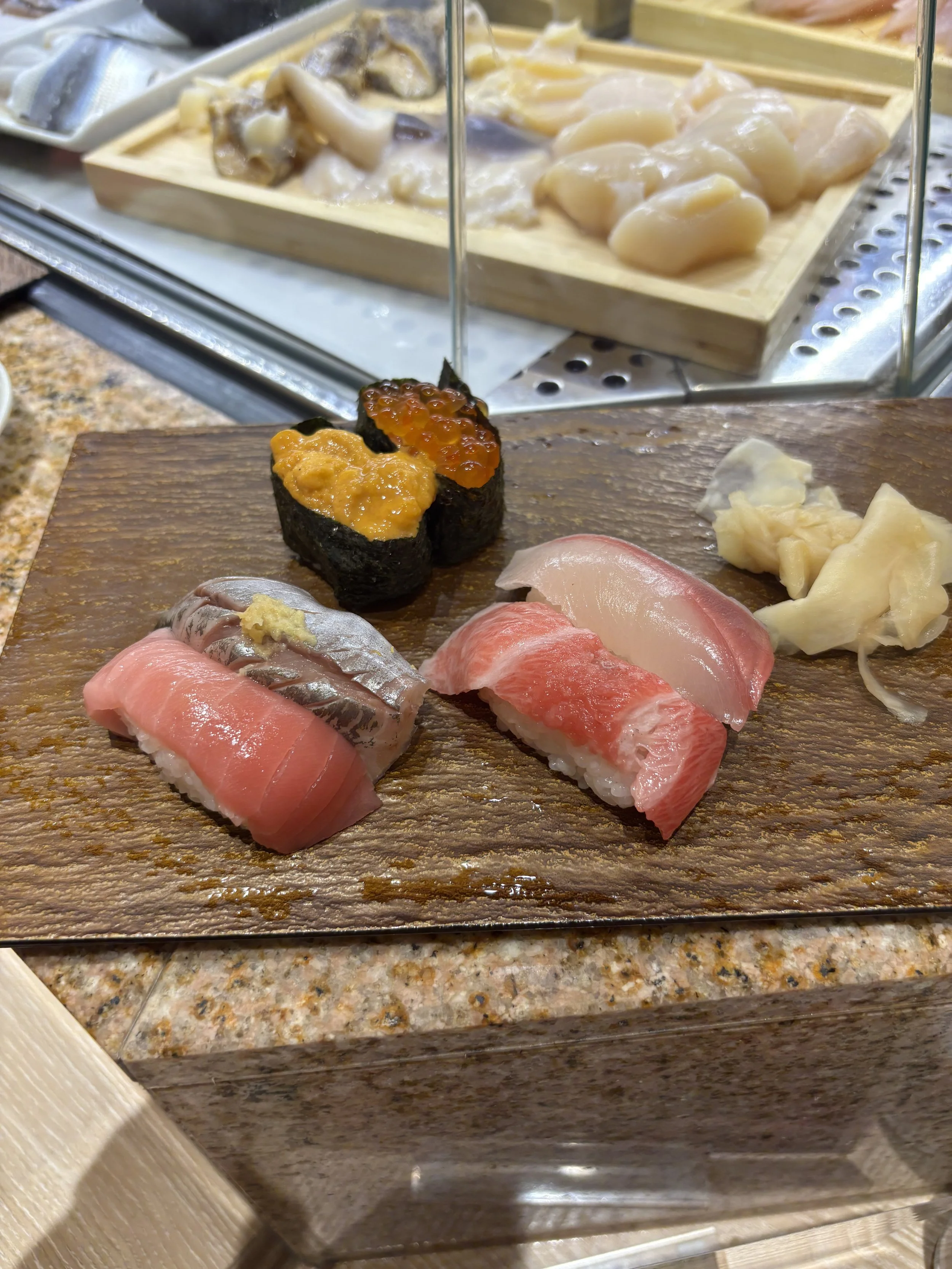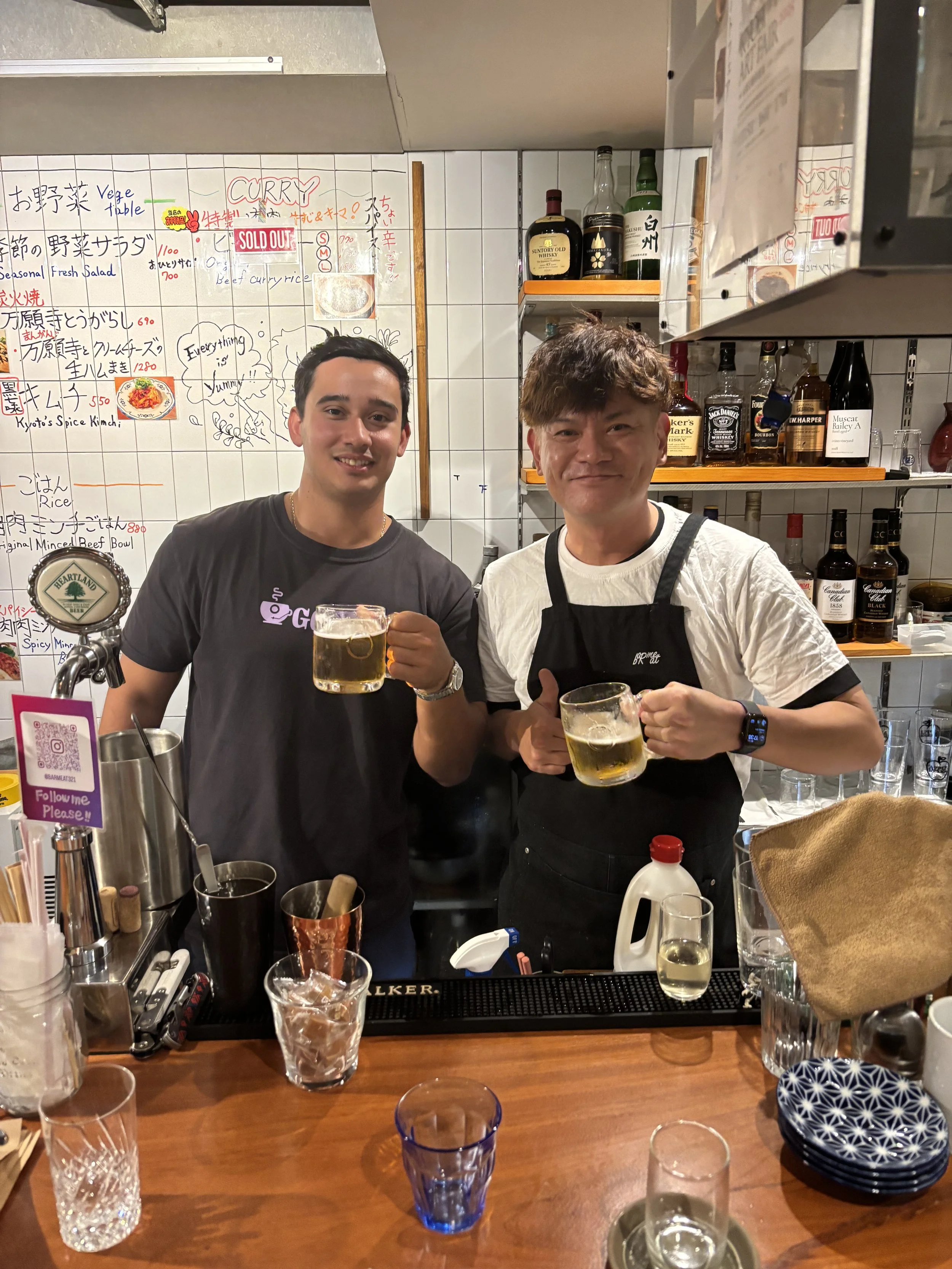By: Joey Casolaro, CFP®
I just returned from something I never thought I'd do this early in my career: taking a full 30-day sabbatical from work. Our company offers one whole month off after every five years of service, with a single rule: no work-related activities are permitted. No emails, no calls, no checking in. For thirty days, I would be completely disconnected. As someone who thrives on routine, stepping away felt both exciting and terrifying. I knew this was a rare opportunity, so I planned a trip around the world with my twin brother and two friends from high school. Here's how I spent those 14 days and what I did during the rest of my time off.
Two Weeks in Japan: A Journey of Complete Immersion
Our adventure took us through three incredible cities: Tokyo, Kyoto, and Osaka. Tokyo felt like New York City, but on a much larger scale and with an impeccably clean atmosphere. The energy, the crowds, the neon lights, and the constant movement were all there, just amplified and without any trash on the street. Kyoto, on the other hand, was the traditional heart of Japan, filled with ancient temples, quiet gardens, mountains, and a slower, more contemplative pace. Osaka was a complete shift, often referred to as Japan's kitchen; it had many restaurants and was similar to Tokyo, but felt like a more down-to-earth city.
We started in Tokyo, where we did something I'd only seen in videos: go-karting through the streets of Shibuya. Picture this: racing through one of the world's busiest intersections dressed in costumes, weaving between taxis and buses. It was exhilarating and absurd in the best way possible.
One evening, we stumbled into an izakaya, a Japanese-style pub that serves small dishes alongside drinks. We found ourselves sitting elbow-to-elbow with salarymen (Japanese office workers who spend their days in corporate offices and their evenings decompressing over beer and yakitori, which are grilled skewers of chicken and meat). These men follow a rigid routine: they work long hours, stay late to demonstrate dedication, and then head to the izakaya to unwind with colleagues. Watching them laugh and shed the formality of the workday was fascinating. It reminded me that no matter where you are in the world, people need spaces to be human.
From Tokyo, we traveled to the mountains of Kyoto, where we stayed in a traditional Japanese inn, known as a ryokan. We slept on futons laid directly on tatami mat floors and bathed in an onsen, a natural hot spring bath. One morning, we visited the famous Fushimi Inari shrine with its thousands of vermilion torii gates. We hiked up the mountain, passing through tunnel after tunnel of these iconic red gates. It felt meditative, like walking through a portal to another world.
We then went to Osaka and experienced a kaiseki meal, a traditional multi-course dinner where each small dish is prepared with meticulous attention to detail. Every plate was a work of art, and every bite told a story about the season, the region, and the chef's craft. We also visited the aquarium, one of the largest in the world, and Universal Studios, where we had the opportunity to experience Super Nintendo World. Before leaving Osaka, we visited TeamLab Planets, a fully immersive digital art museum where you walk barefoot through water, light, and projections that respond to your movement.
Observations: What Japan Taught Me
Japan operates on a different frequency than America, and paying attention to these differences taught me a lot about culture, respect, and intentionality.
The culture of restraint and respect. Japanese people generally keep to themselves in public spaces. On trains, no one talks on the phone or engages in loud conversations; everyone is quietly absorbed in their own thoughts. But after work hours at an izakaya? The restraint melts away, and people become animated and warm.
The smoking culture surprised me. Cigarettes are still very popular in Japan. Restaurants, coffee shops, malls, and public spaces often have designated smoking rooms, a feature that is rare in America.
Efficiency is everywhere. Staircases have signs indicating which side to walk on, depending on whether you're going up or down. Vending machines are on every corner, dispensing everything from hot coffee to cold tea. The subway and bus systems run with clockwork precision and are incredibly easy to navigate, even for tourists. The Shinkansen, Japan's renowned bullet train, which can reach speeds exceeding 200 miles per hour, is a marvel of engineering.
No jaywalking, ever. Even on empty streets with no cars in sight, people wait for the walk signal to turn green. It's a small thing, but it speaks to a culture of collective respect for rules and order.
The kindness of strangers. I was constantly surprised by the kindness of strangers. A man helped us navigate the train system and walked us to our platform. Locals at a bar ordered us champagne and toasted with us. Chefs and restaurant owners never refused when we offered them a drink, turning meals into shared experiences.
The food. Everything we ate was delicious. The Japanese diet consists primarily of vegetables, fish, meat, white rice, and soup, with a minimal amount of processed food. Restaurants and izakayas are typically smaller than their American counterparts, with many establishments having only six to ten seats, but they are found everywhere. The three major convenience stores — 7-Eleven, Lawson, and FamilyMart — serve surprisingly high-quality food, including sushi, egg sandwiches, ramen, and pancakes, that rivals that of sit-down restaurants.
Cleanliness is a priority. The streets are spotless, yet there are very few public garbage cans. People carry their trash with them until they find a proper place to dispose of it.
A different relationship with alcohol. Alcohol is served everywhere, at any time of day, and public drinking is socially acceptable.
Gratitude as a greeting. Instead of handshakes, the Japanese bow to show respect and appreciation.
Coming Home: Family, Fitness, and Focus
Time with Family and Friends
After Japan, I flew to Florida to visit family and friends. I'd read somewhere that if you are in your 30s and see your parents a few times a year, you might only have about 60 visits left. The math is simple but uncomfortable. I also spent time with my grandparents, who are in Florida and New Jersey.
Training My Body and Mind
I dedicated significant time to physical training, including weightlifting, sprinting, and training in Brazilian jiu-jitsu. I've found that when you're physically strong and healthy, your relationships improve, your finances feel more manageable, and your mental health is more resilient. Everything is connected.
Reflecting on Personal Goals
Perhaps the most valuable part of my sabbatical was having uninterrupted time to outline my personal goals and clarify my vision for the future. When you're busy with work and family obligations, it's easy to lose sight of what you're working toward. You can spend years being productive without being purposeful.
Stephen Covey said it best: "Begin with the end in mind." Having time to reflect on my results and what I want my life to look like in 5, 10, and 20 years was crucial. It helped me identify where I should be spending my time and energy, and just as importantly, what I should be delegating or saying no to. Not everything that fills your calendar deserves your attention.
Conclusion
Taking this sabbatical was one of the most transformative experiences of my life. Stepping away from the daily grind allowed me to see the world in a different light, reconnect with what matters most, and return with renewed clarity and purpose. The memories I made in Japan, the time spent with family and friends, and the space to reflect on my goals have given me a foundation I'll carry forward for years to come.
I'm incredibly grateful to the company I work for, not just for offering this benefit, but for fostering a culture that genuinely values rest and renewal. To my colleagues who covered for me while I was away, thank you for making it possible for me to fully disconnect and be present in these experiences. Knowing that everything was in good hands allowed me to embrace this time without guilt or worry.
I also owe a tremendous debt of gratitude to my brother, who planned our entire trip to Japan. From researching ryokans to mapping out our route through Tokyo, Kyoto, and Osaka, his effort turned what could have been overwhelming into an adventure I'll never forget.
Joey Casolaro is a CERTIFIED FINANCIAL PLANNER® at HIGHLAND Financial Advisors, a Fee-Only fiduciary wealth advisory firm that offers comprehensive financial planning, retirement planning, and investment management. Joey graduated from the University of South Florida with a bachelor’s degree in personal finance and successfully passed the CFP national exam in 2021. Joey enjoys working out, spending time outdoors, and hanging out with family and friends in his free time.
The foregoing content reflects the opinions of Highland Financial Advisors, LLC, and is subject to change at any time without notice. Content provided herein is for informational purposes only and should not be used or construed as investment advice or a recommendation regarding the purchase or sale of any security. There is no guarantee that the statements, opinions, or forecasts provided herein will prove to be correct.
Past performance may not be indicative of future results. Indices are not available for direct investment. Any investor who attempts to mimic the performance of an index would incur fees and expenses, which would reduce returns.
Securities investing involves risk, including the potential for loss of principal. There is no assurance that any investment plan or strategy will be successful or that markets will act as they have in the past.
The above article was written with the assistance of artificial intelligence (AI).





